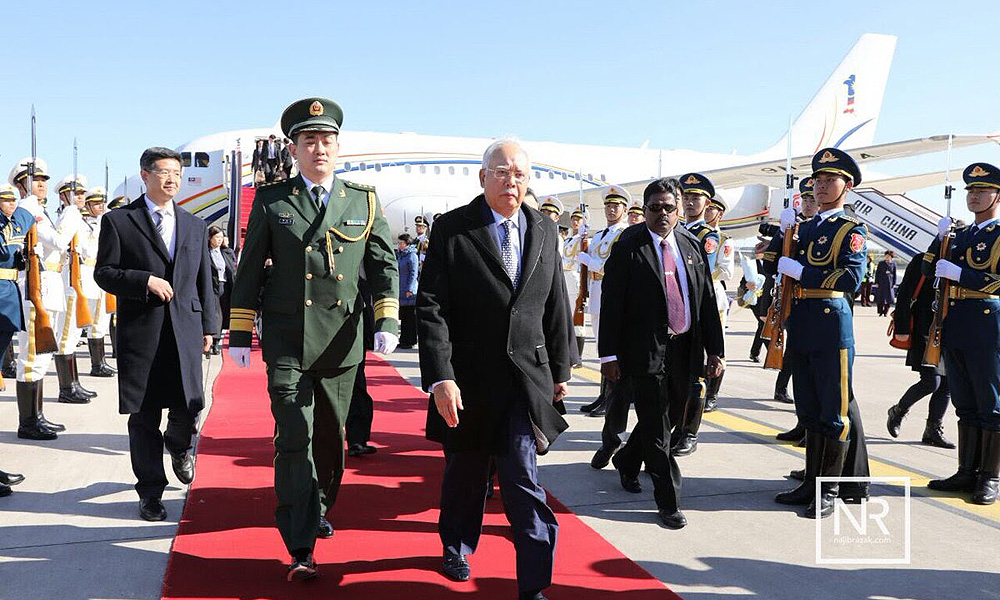
Malaysia is, first and foremost, a developing trading nation. Its foreign policy plays to our strengths as a robust and open economy, and capitalises on our strategic positioning in the region. Malaysia may lack the resources of great powers like China, but it can still shape international events to its own benefit.
In principle, our foreign policy is independent, principled and pragmatic. In reality, it is pragmatic, as Malaysia prioritises power and material interests over idealism and human rights; rationalist, as Malaysia is willing to participate in multilateral and international institutions as long as they do not infringe upon our sovereignty as an independent nation; and non-confrontational, as Malaysia prefers settling disputes behind closed doors as opposed to confronting its peers in public.
Our foreign policy should rightly play to our strengths and strategic interests, but we must avoid coming off as subservient or timid. We cannot hesitate to take a decisive stance on regional challenges, especially when these challenges involve our nearest and dearest dialogue partners like Asean, the US and China.
Malaysia and Asean: nothing personal, just business
The Malaysia-Asean relationship unfortunately remains strictly business. With the Asean digital economy set to be the next big regional project, it is clear that Asean states have put the most effort into boosting economic development. But what are we doing to solve issues like the Rohingya genocide and the South China Sea disputes?
Asean’s efficacy as an instrument for regional governance has been tested repeatedly and we have only belatedly risen to the challenge. Asean tends to prioritise economic growth over inclusive human development and human rights. Boosting growth across the region will no doubt increase the standard of living for many, but economic development without human rights will fill more rich pockets than it will help the bottom 40 percent.
Where are the safeguards for the rights of indigenous peoples and foreign workers? Where are the provisions protecting against child labour and trafficking in persons? By leaving these loopholes open for exploitation, Asean is opening itself up as a haven for smugglers and traffickers, instead of solving issues of stateless peoples and illegal immigration. And we Malaysians will suffer the consequences of these loopholes.
Trump’s America or aggressive China?
Former president Barack Obama’s “pivot to Asia” is dead and all of Southeast Asia knows it.
Will Trump be able to maintain American great power status? Southeast Asians say no. The ISEAS-Yusof Ishak Institute in Singapore conducted a survey examining the reception of Trump’s presidency and the results were dismal. 71. percent of respondents believed that the US global image has either deteriorated (46.3 percent) or deteriorated immensely (25.4 percent) after Trump came to power.
From day one, the Trump administration has been focused on pushing an “America-first” agenda. Trump has been outspokenly abrasive on Islam, and used Islamic extremism to justify the travel ban against six Muslim-majority states. American Islamophobia has alienated Muslim communities around the world, forcing governments, like ours, to have to justify their continued support for the Trump administration.
The bottom line is that there is still a lot of uncertainty when it comes to the Trump administration. Without an actual Asia policy, it will be difficult to predict how the US will project its power in the Asia Pacific. Will it rain “fire and fury” on East Asia, or be the region’s policeman? The US has neglected Southeast Asia before. In fact, Obama’s pivot was more of an anomaly than the norm.
America’s greatest value to Malaysia is as a counterweight to China to keep it toeing the line. But at the moment, China is a much more attractive partner for Malaysia. The Belt and Road Initiative (BRI) has been set up as Asia’s next big multinational and multibillion dollar project, and China is at the centre of the web. With key infrastructure projects planned and nine B2B memoranda signed by Prime Minister Najib Abdul Razak, Malaysia is poised to be an advanced showcase of BRI’s impact on economic and development.
Malaysia tends to tread softly when it comes to its largest trading partner. It would rather settle disagreements with China behind closed doors to avoid publicly disagreeing with its soon-to-be largest investor. How Malaysia has handled the South China Sea disputes is no different.
Malaysia’s claims are legitimate. However, instead of calling out China or backing more vocal states like the Philippines and Vietnam, Malaysia has chosen to “play it safe” by half-heartedly pushing for peaceful resolution to avoid disrupting its bilateral relationship with China.
But the status-quo will not last. Already, there have been calls criticising the government’s ambivalent response to Chinese ships trespassing less than 80km off Sarawak’s coast.
In March, Foreign Minister Anifah Aman uncharacteristically spoke out against China, stating that Malaysia does not acknowledge the “nine-dash line” and that Malaysia “cannot remain neutral” anymore. But this bold stance needs to be backed up by increased security around Malaysia’s maritime boundary, otherwise it will just be more hot air from the government.
What needs to change?
Currently, Malaysian foreign policy is primarily motivated by the need for economic development and steady growth, especially given last year’s dismal GDP growth. Malaysia rightfully needs be smart about how it manages global and regional challenges, or risk being overrun by great powers. But modesty can come off as timidity, especially when the government takes a back seat on major global and regional issues.
Therefore, instead of being pragmatic, rationalist and non-confrontational, how about being a more liberal, idealistic and decisive instead?
MELISSA WONG is a policy and research analyst at the Centre For Public Policy Studies (CPPS). - Mkini



No comments:
Post a Comment
Note: Only a member of this blog may post a comment.